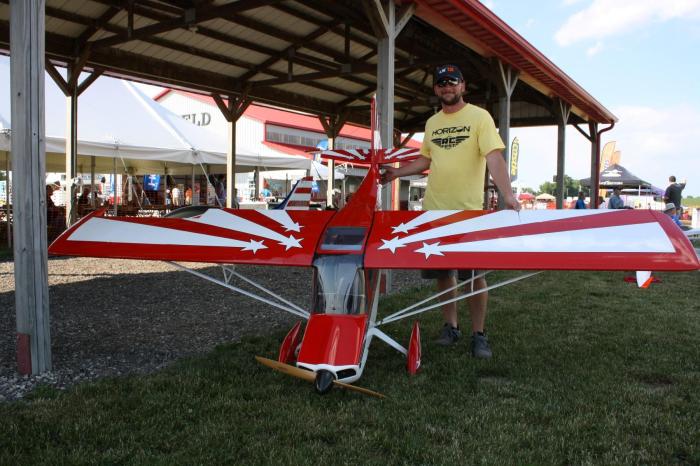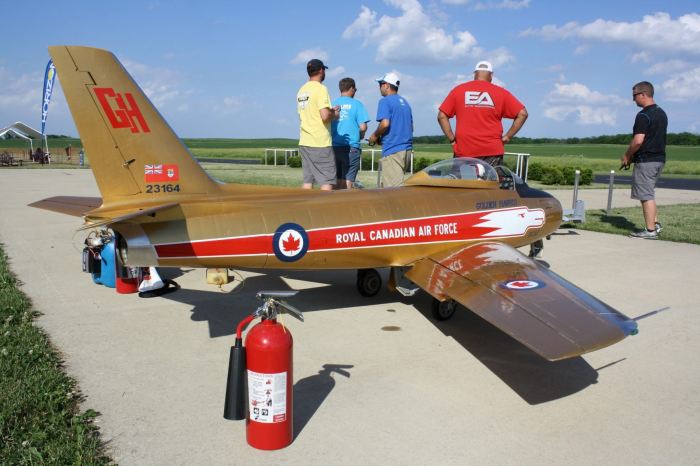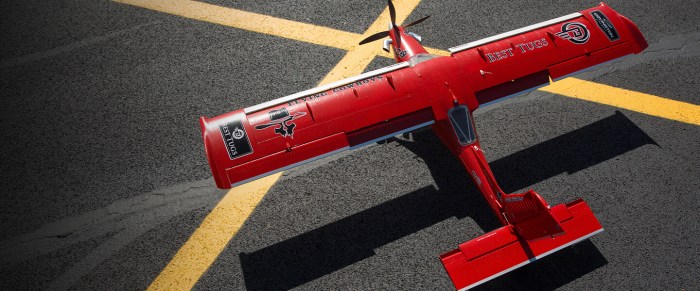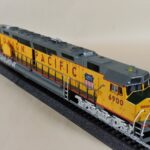Horizon Hobby RC Airplane models dominate a significant segment of the hobbyist market, offering a diverse range from simple trainers to complex warbirds. This exploration delves into the company’s product line, market position, technical specifications, user experiences, and the vibrant community surrounding these meticulously crafted aircraft. We’ll examine the factors driving Horizon Hobby’s success, compare its offerings to competitors, and analyze the technical intricacies that make these planes so popular.
From the design and manufacturing processes to the materials used and the sophisticated radio control systems employed, we’ll uncover the details that distinguish Horizon Hobby RC airplanes. We’ll also explore the user experience, drawing on online reviews and community feedback to provide a comprehensive overview of the advantages and challenges associated with owning and operating these aircraft. The analysis will encompass various models, highlighting their unique features and flight characteristics, and offer insights into the marketing strategies employed by Horizon Hobby.
Popularity and Market Position of Horizon Hobby RC Airplanes

Horizon Hobby holds a significant position within the competitive Radio Controlled (RC) airplane market, although precise market share figures are not publicly released by the company or independently verified market research firms. Their influence, however, is undeniable, stemming from a combination of brand recognition, product diversity, and strategic market positioning.Horizon Hobby’s success can be attributed to several key factors.
Firstly, their extensive product portfolio caters to a wide range of skill levels and interests, from beginner-friendly ready-to-fly models to advanced kits for experienced enthusiasts. Secondly, the company’s strong brand recognition and established distribution network provide widespread accessibility for consumers. Finally, Horizon Hobby’s commitment to innovation and technological advancements in RC technology, such as advanced flight controllers and brushless motors, has helped maintain a competitive edge.
Challenges, however, include increasing competition from both established players and new entrants, particularly from overseas manufacturers offering lower-priced alternatives. Maintaining profitability while navigating fluctuations in raw material costs and consumer spending also poses ongoing challenges.
Market Share and Competitive Landscape
While exact market share data remains elusive, Horizon Hobby’s presence is substantial. Their dominance is largely seen in the North American market, where their extensive retail network and strong brand recognition translate into significant sales. They compete directly with companies like E-flite (also under the Horizon Hobby umbrella), Multiplex, and Hangar 9 (also owned by Horizon Hobby). Indirect competition comes from numerous smaller manufacturers and international brands offering a variety of RC airplanes at different price points.
Analyzing publicly available sales data across major online retailers and hobby stores would provide a more accurate picture, but this data is often aggregated and not specific to RC airplanes.
Comparison with a Major Competitor: E-flite
E-flite, a brand owned by Horizon Hobby, presents an interesting case study in internal competition. While both brands operate under the same parent company, they often target different segments of the market. E-flite generally focuses on more affordable, ready-to-fly models aimed at beginners and casual hobbyists. Their designs prioritize ease of use and durability, often featuring simpler airframes and less complex electronics.
In contrast, some of Horizon Hobby’s other brands (such as ParkZone or Blade) offer more specialized or high-performance models targeted at advanced pilots, featuring more sophisticated designs, materials, and electronics, resulting in a higher price point. This internal competition allows Horizon Hobby to cater to a broader range of customers and potentially capture a larger market share across different price segments.
The key difference lies in the intended user and the level of technical expertise required for operation.
Pricing Strategies and Product Differentiation
Horizon Hobby employs a multi-tiered pricing strategy, reflecting the varying complexity and features of their aircraft. Their ready-to-fly models are generally priced competitively with similar offerings from competitors, while their more advanced kits and high-performance models tend to command a premium price, reflecting the higher quality components and advanced features. This strategy allows them to attract both budget-conscious beginners and experienced hobbyists willing to invest in high-end equipment.
Product differentiation is achieved through design innovations, advanced features like integrated flight controllers and GPS systems, and the use of high-quality materials. The brand’s reputation for reliability and customer support further enhances its value proposition.
Technical Aspects of Horizon Hobby RC Airplanes

Horizon Hobby’s success in the RC airplane market hinges not only on branding and distribution but also on the technical sophistication of its products. A deep dive into the radio control systems, construction materials, and maintenance requirements reveals the key elements contributing to the performance and longevity of these models.
Radio Control Systems
Horizon Hobby utilizes a range of radio control systems across its airplane lineup, catering to different skill levels and model complexities. Spectrum DX series transmitters, for example, are known for their user-friendly interfaces and robust signal transmission. These systems employ spread-spectrum technology, minimizing interference and ensuring reliable control even in crowded airspace. Higher-end models often feature features like telemetry, providing real-time feedback on battery voltage, signal strength, and other critical parameters.
Conversely, simpler systems, often found in entry-level planes, may offer fewer channels and lack advanced features, but prioritize ease of use and affordability. The choice of system significantly impacts the pilot’s experience and the plane’s overall capabilities. More advanced systems allow for finer control and more complex flight maneuvers.
Construction Materials
The materials used in constructing Horizon Hobby RC airplanes directly influence their performance, durability, and weight. Many models utilize lightweight yet strong balsa wood for the airframe, offering a good balance between structural integrity and maneuverability. However, increasingly, manufacturers are incorporating composite materials like fiberglass and carbon fiber, particularly in high-performance models. These materials enhance strength and rigidity, enabling faster speeds and more aggressive maneuvers.
Foam-based materials, such as EPO (Expanded PolyOlefin), are also common, particularly in less expensive and more durable trainer aircraft. EPO’s inherent flexibility helps absorb impacts, making it ideal for beginners. The selection of materials is a crucial factor in determining a model’s intended use and its price point. High-performance models often command a higher price due to the use of premium materials.
Maintenance Procedures
Regular maintenance is critical to ensuring the safe and reliable operation of Horizon Hobby RC airplanes. Engine care, if applicable, involves tasks such as regular cleaning, lubrication, and the timely replacement of worn parts like glow plugs or carburetor components. For electric models, battery maintenance is paramount. This includes proper charging procedures using appropriate chargers, storage at optimal temperatures, and regular cycle counting to monitor battery health and lifespan.
Component replacement, such as servos, control horns, and linkages, is often necessary due to wear and tear or accidental damage. Regular inspections for cracks, loose connections, and other signs of damage are essential for preventative maintenance. Horizon Hobby provides comprehensive manuals for each model, outlining specific maintenance schedules and procedures. Adhering to these recommendations is crucial for extending the life of the aircraft and ensuring its continued safe operation.
Illustrative Examples of Horizon Hobby RC Airplanes

Horizon Hobby offers a diverse range of RC airplanes catering to various skill levels and preferences. From beginner-friendly trainers to advanced aerobatic models, their lineup showcases innovative design and robust construction. The following examples highlight the breadth and depth of their product portfolio.
E-flite Timber X 1.5m
The E-flite Timber X 1.5m is a versatile, durable, and easy-to-fly RC airplane perfect for both beginners and experienced pilots. Its robust construction, featuring a durable EPO foam airframe, allows for forgiving landings and less worry about minor crashes during learning. The design incorporates a classic high-wing configuration, providing inherent stability and making it exceptionally easy to control. The color scheme typically features a striking combination of bright yellow and black accents, offering excellent visibility during flight.
This model is well-suited for various flying styles, from casual recreational flights to more ambitious maneuvers. Its larger size provides a stable platform for learning, and the powerful motor allows for effortless climbs and impressive flight times.
ParkZone Vapor
The ParkZone Vapor stands out as an excellent entry-level RC airplane, specifically designed for beginners. Its lightweight and durable construction, coupled with its simple design, makes it exceptionally forgiving to fly. The Vapor’s gentle flight characteristics minimize the risk of damage during early learning experiences. Its typical color scheme is a vibrant blue and white, creating a visually appealing and easily trackable model in the air.
Its simple design and user-friendly features ensure a smooth learning curve, making it ideal for individuals new to the hobby. The Vapor’s ease of use and forgiving nature allows pilots to focus on mastering fundamental flight skills before progressing to more complex models.
Hangar 9 Carbon Cub S 2, Horizon Hobby Rc Airplane
For the more experienced pilot seeking a robust and capable airplane, the Hangar 9 Carbon Cub S 2 presents a compelling option. This scale model features an incredibly detailed replica of a classic Cub aircraft. The design showcases a sophisticated blend of realistic aesthetics and high-performance capabilities. The paint scheme often replicates the livery of a classic bush plane, featuring muted greens, browns, and yellows, with realistic weathering details.
Its robust construction, incorporating a mix of lightweight materials, offers exceptional durability and strength. The large flaps and generous control surfaces allow for impressive low-speed handling and short take-offs and landings, making it ideal for challenging environments. The Carbon Cub S 2 provides a thrilling and realistic flying experience, appealing to pilots seeking a combination of scale realism and exceptional performance.
Compelling Product Descriptions and Marketing Materials
Creating compelling product descriptions requires highlighting key features and benefits that resonate with specific customer segments. For the Timber X, a description might emphasize its durability, ease of use for beginners, and versatility for various flying styles. Marketing materials could include a video showcasing smooth takeoffs and landings, highlighting its stability. For the Vapor, the focus should be on its affordability, simplicity, and ideal suitability for beginners, with visuals showcasing effortless flight and easy handling.
A brochure might feature close-up images of the aircraft’s robust construction. For the Carbon Cub S 2, the marketing materials would highlight its realistic scale details, high-performance capabilities, and the thrill of flying a realistic bush plane, showcasing the detailed paint scheme and smooth flight maneuvers in promotional videos. Brochures might feature images of the aircraft in various flight scenarios, emphasizing its versatility.
Horizon Hobby’s success in the RC airplane market stems from a combination of factors: a diverse product line catering to various skill levels, a commitment to quality and innovation, and a strong online community that fosters engagement and support. While challenges exist in a competitive landscape, Horizon Hobby’s focus on technological advancements, user experience, and brand loyalty positions it for continued growth.
The company’s dedication to providing high-quality, meticulously designed aircraft ensures a lasting impact on the RC aviation hobby.

